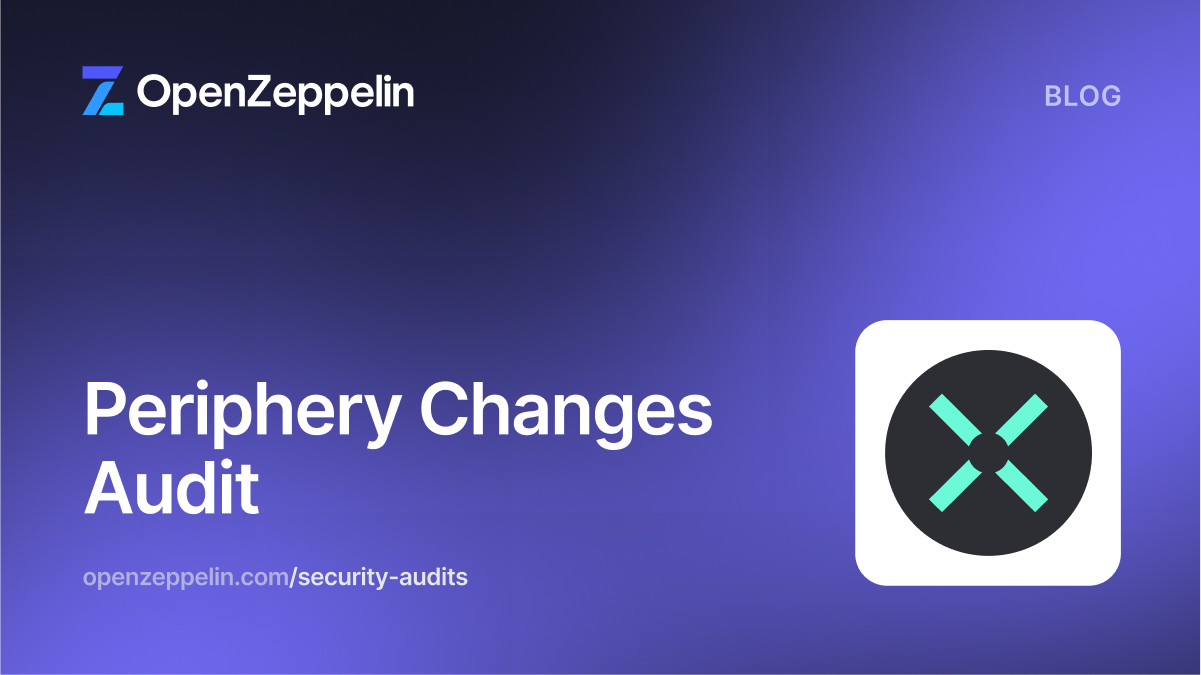The Compound team engaged us to audit part of their latest gas optimizations in the protocol. The audited patch is 1cf040412fc8a0cfd1187bb0d8a525c3ae2f78aa, and the scope was limited to the modifications applied in files:
CDaiDelegate.solCErc20.solCEther.solComptroller.solComptrollerG1.solComptrollerInterface.solDAIInterestRateModel.solJumpRateModel.solMaximillion.solSafeMath.solWhitepaperInterestRateModel.solCToken.sol(with the caveat mentioned below)
It must be highlighted that we left out of scope:
- All changes to the
PriceOracle.sol,SimplePriceOracle.solandPriceOracleProxy.solfiles - All changes to the
CERC20Delegator.solfile - A modification in the
CTokencontract to short-circuit interest accrual in theaccrueInterestfunction
No major issues were found during our assessment. We do make some suggestions to improve the code’s overall quality and the system’s efficiency in terms of gas costs.
High-level overview of the changes
The audited patch consists of a series of gas optimizations to reduce operation costs, without significantly modifying the system’s behavior.
Some of the most relevant changes are the removal of unused verification hooks in the CToken contract, a better use of local variables to reduce the amount of SLOADs operations, and the removal of redundant transfer checks to make error-handling more efficient.
A detailed list with all changes can be found in the commit message.
Following we list our recommendations, in order of importance.
Critical severity
None.
High severity
None.
Medium severity
None.
Low severity
[L01] Function redeemFresh may not fail early
The redeemFresh function of the CToken contract has been modified to inline a validation previously done in the redeemVerify function of the Comptroller contract. This verification is done too late in the function, after storage modification and event emission.
Following the “fail early” principle, consider moving the refactored verification before changes are applied to the contract’s storage and events emitted. This should not only favor the function’s readability, but also save gas costs for failed transactions.
Notes & Additional Information
[N01] Unnecessary reads from storage
The accrueInterest function of the CToken contract was modified to, among other things, reduce the amount of storage read operations. This is intended to make the system more efficient in terms of gas costs. However, there still are redundant read operations that can be avoided. In particular:
- State variable
totalBorrowsis assigned to theborrowsPriorlocal variable in line 394, but later is read from storage in lines 426 and 431 - State variable
totalReservesis assigned to thereservesPriorlocal variable in line 395, but later is read from storage in line 436
Consider reusing the corresponding local variables to avoid redundant SLOADs operations.
[N02] Inconsistent use of enum for error messages
A verification previously done in the redeemVerify function has been inlined at the end of the redeemFresh function to avoid an unnecessary call to the Comptroller contract. However, the error message included in the new require statement has been hardcoded instead of using the FailureInfo enum used throughout the rest of the function.
Consider adding the new error to the FailureInfo enum of the TokenErrorReporter contract so as to keep a consistent style in error messages of the redeemFresh function.
[N03] Inconsistent use of warning comments when calling doTransferIn function
After the removal of the internal calls to the checkTransferIn function in the mintFresh, repayBorrowFresh and _addReservesFresh functions of the CToken contract, warning comments explaining the behavior of the doTransferIn function become more important. These comments can be found in the mintFresh and repayBorrowFresh functions, but are missing in the _addReservesFresh function.
To be consistent in the use of warning comments and favor the code’s readability, consider adding similar warnings in the _addReservesFresh function before doTransferIn is called.
[N04] Unused verification functions
Consider removing the transferVerify, mintVerify, redeemVerify, borrowVerify, repayBorrowVerify, seizeVerify functions, since they are no longer being used. Alternatively, consider adding an inline comment explicitly stating that these functions are never used to favor readability.
This note should be disregarded if the mentioned external functions are used by off-chain clients.
[N05] Unused error codes
Consider removing error codes REPAY_BORROW_TRANSFER_IN_NOT_POSSIBLE, TOKEN_INSUFFICIENT_ALLOWANCE, TOKEN_INSUFFICIENT_BALANCE, MINT_TRANSFER_IN_NOT_POSSIBLE, REPAY_BORROW_TRANSFER_IN_NOT_POSSIBLE, ADD_RESERVES_TRANSFER_IN_NOT_POSSIBLE from the FailureInfo enum of the TokenErrorReporter contract, since they are no longer being used. Once the error codes are removed from the contract, consider also removing them from the scenario/src/ErrorReporterConstants.ts file.
Conclusions
No critical nor high issues were found. Minor suggestions were made to improve the code’s overall quality.


